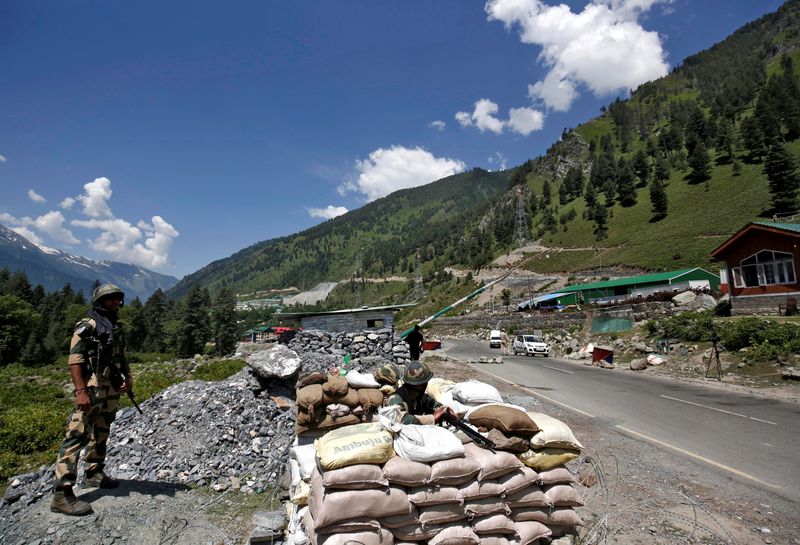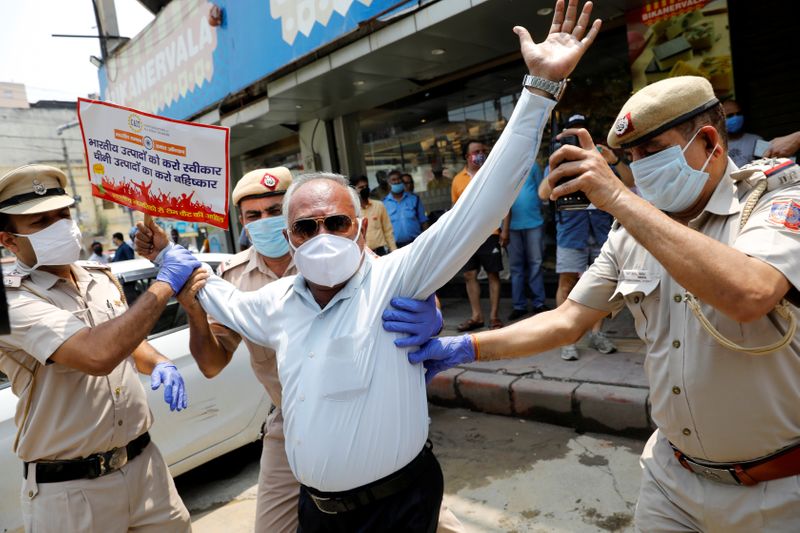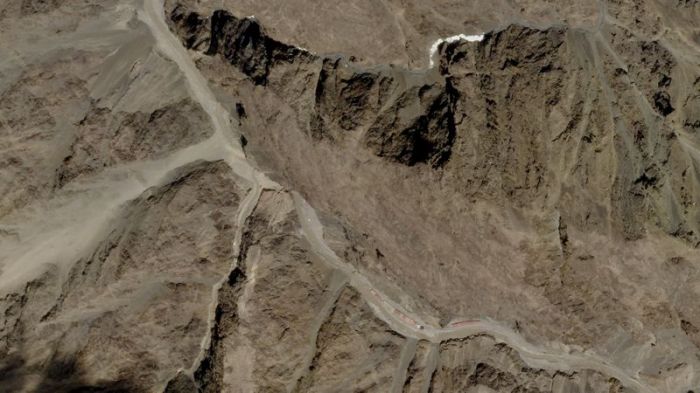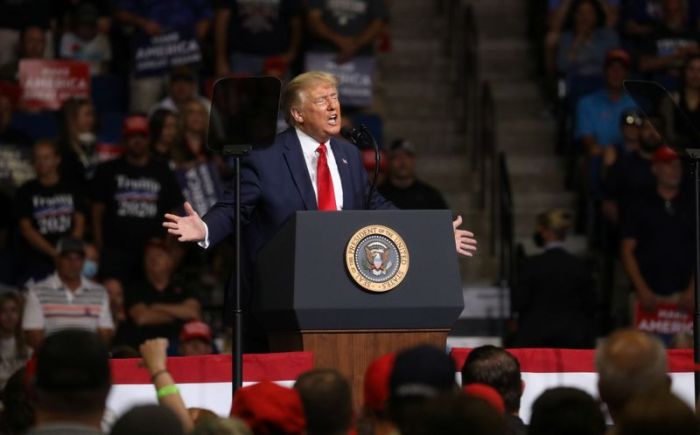NEW DELHI (Reuters) – Indian and Chinese military commanders met on Monday to try to ease tensions at their disputed Himalayan border as the public mood hardened in India for a military and economic riposte following the worst clash in more than five decades.
Major Indian traders called for a boycott of Chinese goods and the state of Maharashtra, home to India’s financial capital of Mumbai, put three initial investment proposals from Chinese companies worth 50 billion rupees ($658 million) on hold, just days after signing the agreements.
India said 20 of its soldiers were killed in a clash last Monday with Chinese troops in a major escalation of a weeks-long standoff between the nuclear-armed Asian giants in the western Himalayas.
An Indian government source said commanders met in Moldo, on the Chinese side of the Line of Actual Control, the de facto border dividing India’s Ladakh region from the Chinese held Aksai Chin.
The meeting lasted several hours, with the Indian side pushing China to withdraw its troops back to where they were in April, a second Indian government source said.
China, in previous rounds of talks, had asked India to stop all construction work in what it says is Chinese territory.
Soldiers fought with rocks, metal rods and wooden clubs at the Galwan Valley last Monday after a weeks-long standoff.
China has not disclosed how many casualties it suffered, though an Indian minister has said around 40 Chinese soldiers may have been killed.
Chinese Foreign Ministry spokesman Zhao Lijian told a briefing in Beijing on Monday that the two sides were in communication through diplomatic and military channels.
Many in India have called for Prime Minister Narendra Modi’s nationalist government to show it will not be bullied, remembering their country’s humiliation in a brief border war against China in 1962.
Members of an Indian traders’ body made a bonfire of Chinese goods at a market in New Delhi, pushing for a nationwide boycott of products made in China.
The Confederation of All India Traders (CAIT), which represents some 70 million traders, has asked federal and state governments to support a boycott of Chinese goods and cancel government contracts awarded to Chinese companies.
“The entire nation is filled with extreme anger and intensity to give a strong befitting response to China not only militarily but also economically,” CAIT National General Secretary Praveen Khandelwal wrote in a letter to chief ministers of some Indian states.
In prosperous Maharashtra, the government said it was putting three investment plans, including from Great Wall Motor Co, on hold.
“In the current environment we will wait for the federal government to announce a clear policy regarding these projects,” industries minister Subhash Desai said.
China is India’s second-biggest trading partner, with bilateral trade worth $87 billion in the fiscal year ending March 2019, and a trade deficit of $53.57 billion in China’s favour, the widest India has with any country.
The editor-in-chief of China’s Global Times newspaper warned that the “nationalists of India need to cool down”.
“China’s GDP is five times that of India, military spending is three times,” Global Times editor Hu Xijin said in a post on Twitter.
The Global Times is published by the People’s Daily, the official newspaper of China’s ruling Communist Party.
(Additional reporting by Gabriel Crossley in Beijing, Neha Dasgupta, Aditi Shah, Rajendra Jadhav and Sankalp Phartiyal; Editing by Simon Cameron-Moore and Nick Macfie)























